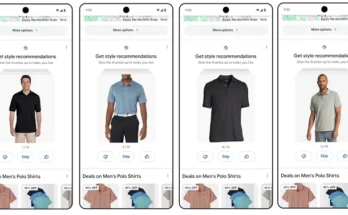Recently, Meta, formerly known as Facebook, has come under fire from European consumer groups who are raising concerns about the company’s data practices. These groups allege that Meta engages in massive and illegal data processing, sparking a debate about privacy and data protection.
The accusations against Meta are significant, as the company has a vast amount of user data at its disposal. With billions of users worldwide, Meta has access to a treasure trove of personal information, including browsing habits, preferences, and even intimate details shared on its platforms.
European consumer groups argue that Meta’s data processing practices go beyond what is legally permissible. They claim that the company collects and processes user data without obtaining proper consent or providing clear information on how the data will be used. This lack of transparency raises concerns about the privacy rights of Meta users.
One of the main issues highlighted by consumer groups is the alleged manipulation of user consent. They argue that Meta’s consent mechanisms are designed to obtain broad and vague consent, making it difficult for users to understand and control how their data is being used. This raises questions about the validity of the consent obtained by the company.
In addition to the concerns around consent, consumer groups also point out that Meta’s data processing practices may violate the principles of purpose limitation and data minimization. These principles require companies to collect and process only the data necessary for a specific purpose and to retain it for the shortest possible time. The consumer groups claim that Meta collects excessive amounts of data and retains it for longer than necessary.
The allegations against Meta come at a time when data privacy and protection are hot topics globally. The European Union’s General Data Protection Regulation (GDPR) has set a high standard for data protection, and companies operating in Europe are expected to comply with its requirements. Failure to do so can result in significant fines and reputational damage.
Meta has responded to the accusations, stating that it takes data privacy seriously and complies with applicable laws and regulations. The company argues that it provides users with control over their data and offers transparency through its privacy settings.
However, consumer groups remain skeptical and are calling for stronger enforcement of data protection laws. They argue that companies like Meta should face stricter penalties for non-compliance and that regulatory authorities should conduct thorough investigations into their data processing practices.
The outcome of these allegations and the response from Meta will have far-reaching implications for data privacy and protection. It will shape the future of how companies handle user data and the level of control and transparency users can expect.
In conclusion, European consumer groups have accused Meta of ‘massive, illegal’ data processing, raising concerns about the company’s data practices. The allegations center around issues of consent, purpose limitation, and data minimization. As the debate on data privacy continues, it is crucial for regulatory authorities to address these concerns and ensure that companies like Meta comply with the necessary regulations to protect user privacy.




